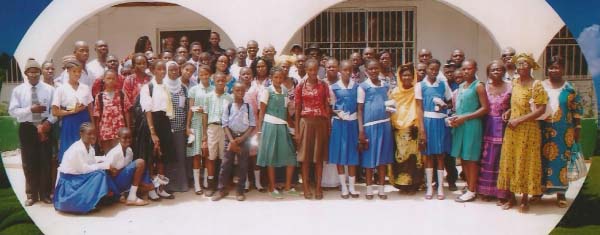
Jonathan Goode chaired the event, which was attended by students, government officials and private sector representatives.
TAPEA president Ms Priscilla Jones told the audience that her association was established in 2005, “to complement the government’s efforts in addressing the growing needs and welfare of elderly people in The Gambia, and to foster better between youths and elders in our society.”
It was also created to prevent the abuse and neglect of elders, and to explore and promote sustainable ways to achieve this goal.
Defining “elder abuse”, she said “elder abuse can be defined as a single or repeated act or lack of appropriate act occurring within any relationship, where there is an expectation of trust, which causes harm or distress to an elderly person aged 60 years and above”.
According to Ms Jones, elder abuse “is a serious problem across the globe; but it is still under-acknowledged and widely under-reported, considering the fact that elder abuse exists in families and communities.”
Elder abuse, she went on, includes hurting, exploiting or neglecting an elderly person such as a parent or relative; neglecting the basic needs of a person over 60 years old, who is dependent on you and you are responsible for him or her.
The types of abuse include emotional abuse, such as verbal assault, threat, calling them a witch, harassing or intimidating them; denying them proper medical care, clothing or social contact; forced confinement of an elderly person; neglecting their needs and wishes or feelings or depriving them of access to household finances.
Raising awareness on elder abuse is an ongoing effort, Ms Jones declared, and she urged, educational and religious institutions to assist TAPEA to promote public awareness and better understanding of elder abuse prevention, “as aging is everyone’s future”.
Landing Sonko, a cluster monitor for schools in Banjul, deputized for the regional education directorate.
He advised students to give all persons due respect, and to support the elderly in our society.
Ms Marie Dalliah mentioned Gambians’ traditional norms and values, and the need to return to showing love and concern for one another in our community.
The public relations officer at BCC, Sandigi Njie, spoke of one’s religious obligations, from the perspective of Muslims, to show respect and care for the elderly.
Reverend Jacob Cole spoke of people’s religious obligation towards the elderly, based on Christian doctrine.
Participants from the floor joined in the open discussion on the theme.
The representative of the department of Social Welfare in Banjul said people should take up the responsibility to care for the elderly at home.
TAPEA secretary Monica Sillah, in her vote of thanks, noted that the public symposium was a success, and reminded the audience, particularly the students present, that elders have a special place of honour in our society.

